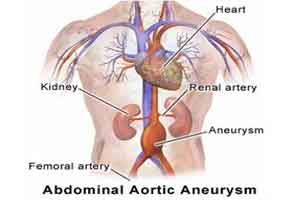- Home
- Editorial
- News
- Practice Guidelines
- Anesthesiology Guidelines
- Cancer Guidelines
- Cardiac Sciences Guidelines
- Critical Care Guidelines
- Dentistry Guidelines
- Dermatology Guidelines
- Diabetes and Endo Guidelines
- Diagnostics Guidelines
- ENT Guidelines
- Featured Practice Guidelines
- Gastroenterology Guidelines
- Geriatrics Guidelines
- Medicine Guidelines
- Nephrology Guidelines
- Neurosciences Guidelines
- Obs and Gynae Guidelines
- Ophthalmology Guidelines
- Orthopaedics Guidelines
- Paediatrics Guidelines
- Psychiatry Guidelines
- Pulmonology Guidelines
- Radiology Guidelines
- Surgery Guidelines
- Urology Guidelines
Smoking, not alcohol bigger risk factor for abdominal aortic aneurysm : British Journal of Surgery

In an analysis of published studies, lower levels of alcohol consumption were associated with a lower risk of abdominal aortic aneurysm until approximately 15 to 20 g/day, with an increasing risk thereafter. In the British Journal of Surgery analysis, the increase in risk beyond 2 units/day was stronger in men than in women.
An abdominal aortic aneurysm occurs when an area of the aorta the main blood vessel that supplies blood to the abdomen, pelvis, and legs becomes very large or balloons out. There are well established risk factors for the development of abdominal aortic aneurysm such as increasing age, male sex, and smoking but the role of alcohol remains uncertain.
The analysis combined results from 11 large prospective cohort studies, including more than 3500 cases identified from nearly 500,000 participants, followed-up for between 5 and 34 years.
"The association is fairly weak and the evidence is not strong for alcohol either decreasing or increasing the risk of abdominal aortic aneurysm by very much," said Dr. Darren Greenwood, senior author of the study. "If people want to stay healthy and active for longer, the biggest improvement they can make is to quit smoking."

Disclaimer: This site is primarily intended for healthcare professionals. Any content/information on this website does not replace the advice of medical and/or health professionals and should not be construed as medical/diagnostic advice/endorsement or prescription. Use of this site is subject to our terms of use, privacy policy, advertisement policy. © 2020 Minerva Medical Treatment Pvt Ltd